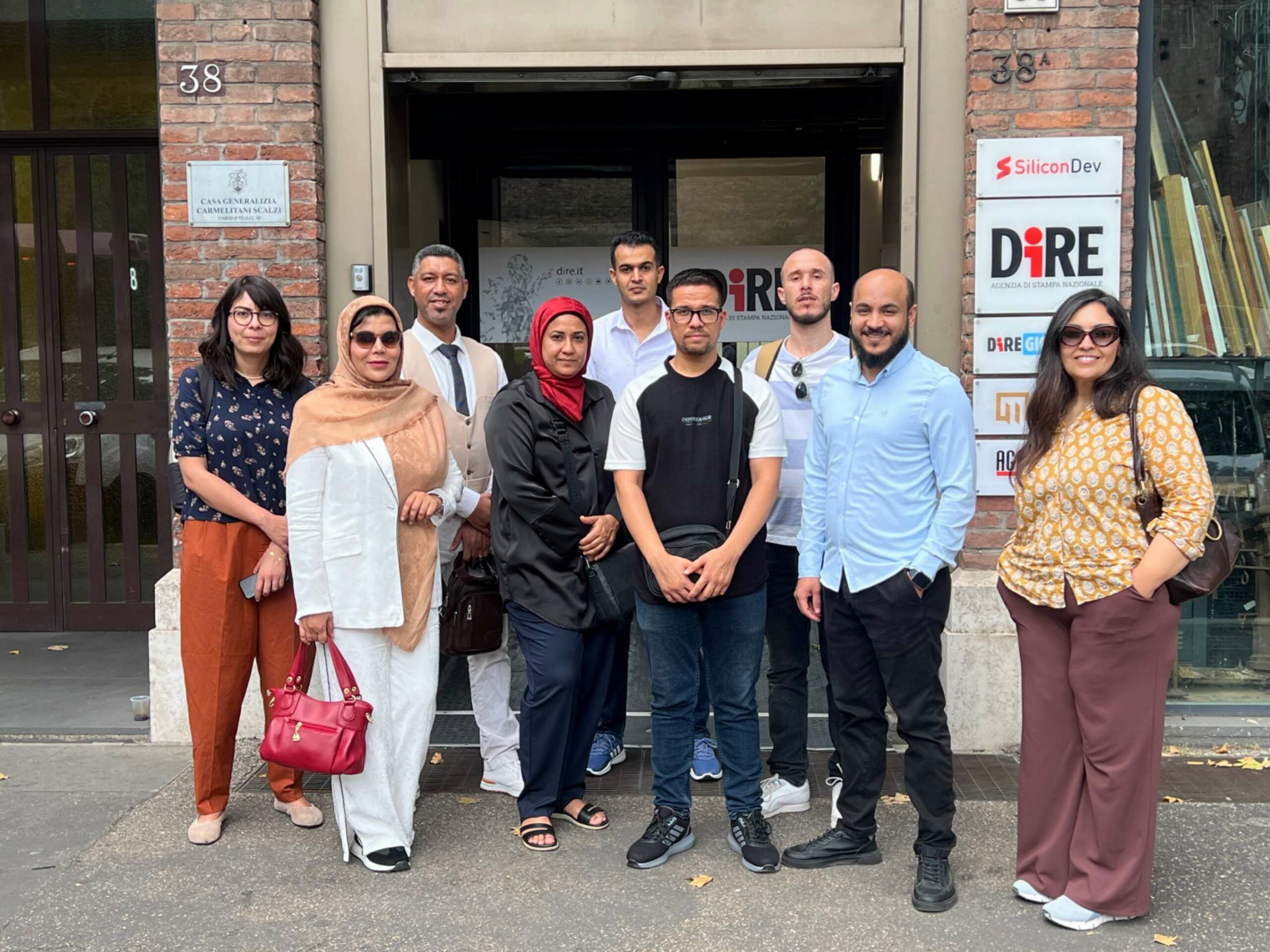Reporting for Peace in Libya: Training Program on Post-Conflict Journalism
Introduction
In post-conflict contexts, journalism plays a critical role in promoting peace and reconciliation. By shaping narratives that encourage understanding and dialogue, journalists can challenge divisive rhetoric, counter misinformation, and contribute to rebuilding trust within fractured societies. In Libya, where years of conflict have left deep societal and political divides, the role of ethical, conflict-sensitive journalism is more important than ever.
This training program is designed to equip Libyan journalists and bloggers with the tools and knowledge to report responsibly and constructively in such a challenging environment. The program begins with online seminars covering essential topics such as media ethics and responsibility, countering disinformation, data-driven journalism, and conflict analysis. These sessions provide participants with practical skills to navigate Libya’s complex media landscape and produce narratives that encourage dialogue and mutual understanding.
The training culminates in an intensive three-day workshop in Rome, focusing on investigative journalism, multimedia storytelling, and strategies for reporting on sensitive issues in conflict zones. Through hands-on exercises and discussions with experienced professionals, participants will gain deeper insights into the role of journalism in peacebuilding.
Through this training, we aim to empower Libyan journalists to become agents of positive change, using their platforms to foster informed public discourse and bridge societal divides. By promoting ethical and impactful storytelling, we hope to contribute to the broader goal of lasting peace and stability in Libya.
The audience
The program brought together 25 Libyan journalists, selected from various regions of the country, for a comprehensive learning experience. The training included a blend of online expert-led lectures and an intensive in-person seminar held in Rome from June 16 to 19, 2025.
Out of the 25 journalists, 10 participants were selected for the in-person seminar, with 7 ultimately able to attend due to unforeseen circumstances. This initiative aimed to equip participants with the skills and knowledge to address the unique challenges they face in fragile media environments.
Program Outcomes
The Reporting for Peace program has contributed to strengthening the role of Libyan journalists as agents of peace and accountability in the post-conflict landscape, helping to foster a more responsible, ethical, and resilient media environment in Libya.
Moreover, it successfully equipped Libyan journalists with the skills and knowledge needed to engage in ethical and inclusive journalism in post-conflict Libya. Key outcomes included:
Reclaiming Libya’s Image
Participants emphasized the importance of reshaping the international narrative around Libya, advocating for more nuanced and locally grounded reporting that moves beyond stereotypes.
The Role of AI and Disinformation
Discussions on the role of artificial intelligence and disinformation highlighted the need for journalists to understand and address the challenges posed by AI-generated content and digital noise.
Ethical Journalism in Conflict Zones
Ethical challenges were a central theme throughout the program, with participants reflecting on how to navigate issues like neutrality, source reliability, and the framing of conflict in a highly polarized media environment.


